The international documentary film festival Artdocfest/Riga is expanding its offerings with a new interfestival program, "Artdocfest/Riga Recommends." The program will launch on November 4 at 18:00 at the Splendid Palace cinema as part of "Documentary Monday," featuring a screening of Four Daughters (Olfa's Daughters). We are pleased to offer an interview with the film's director, Kaouther Ben Hania.
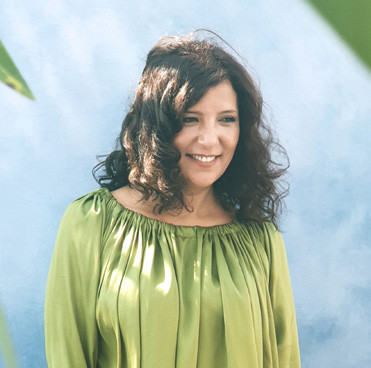
After "Beauty and the Dogs" and "The Man Who Sold His Skin" did you want to come back to the documentary format with which you had made a name for yourself?
— This project dates back much further. It first began in 2016 while I was finishing "Zaineb Hates the Snow", a documentary which took up six years of my life, in which I filmed the life of a teenage girl. I heard Olfa talking on the radio about the tragic story of her daughters. Her story intrigued me and moved me. Here again, it was the story of a mother and of her four teenage daughters.
Olfa fascinated me right from the start. I saw in her a very powerful character for film. She was the embodiment of a mother with all of her contradictions, her ambiguities, her troubled areas. Her complex, terrible story haunted me and I had a desire to explore it, to understand it, without knowing how I would do that. So I called the journalist and he gave me her phone number so that I could meet with her. That’s how it all began.
Is Olfa’s story well known in Tunisia?
— Let’s say that at the point when I contacted her, she had already appeared on TV and radio numerous times. But you have to understand that at that time, this kind of story was commonplace. What interested me in Olfa was that her story is about women, about a mother and about daughters.
Did you think you would turn it into a fiction film?
— I went through different stages. At first, I said to myself that I would film her with her two remaining daughters, Eya & Tayssir, to express the absence of the other two. I began to film them in 2016 and then again in 2017. But something wasn’t working. How to revive memories without embellishing or changing them, without playing the good guy, without sugar-coating the truth? How to succeed in recapturing what took place and what is no longer there? How to face up to the truth of one’s own past years later? But the most problematic aspect for me was the way in which Olfa was playing a role. From the second I turned on my camera, she began to play a specific role. I had to stop filming because I ended up realizing that I was going to fall into the trap she was setting for me.
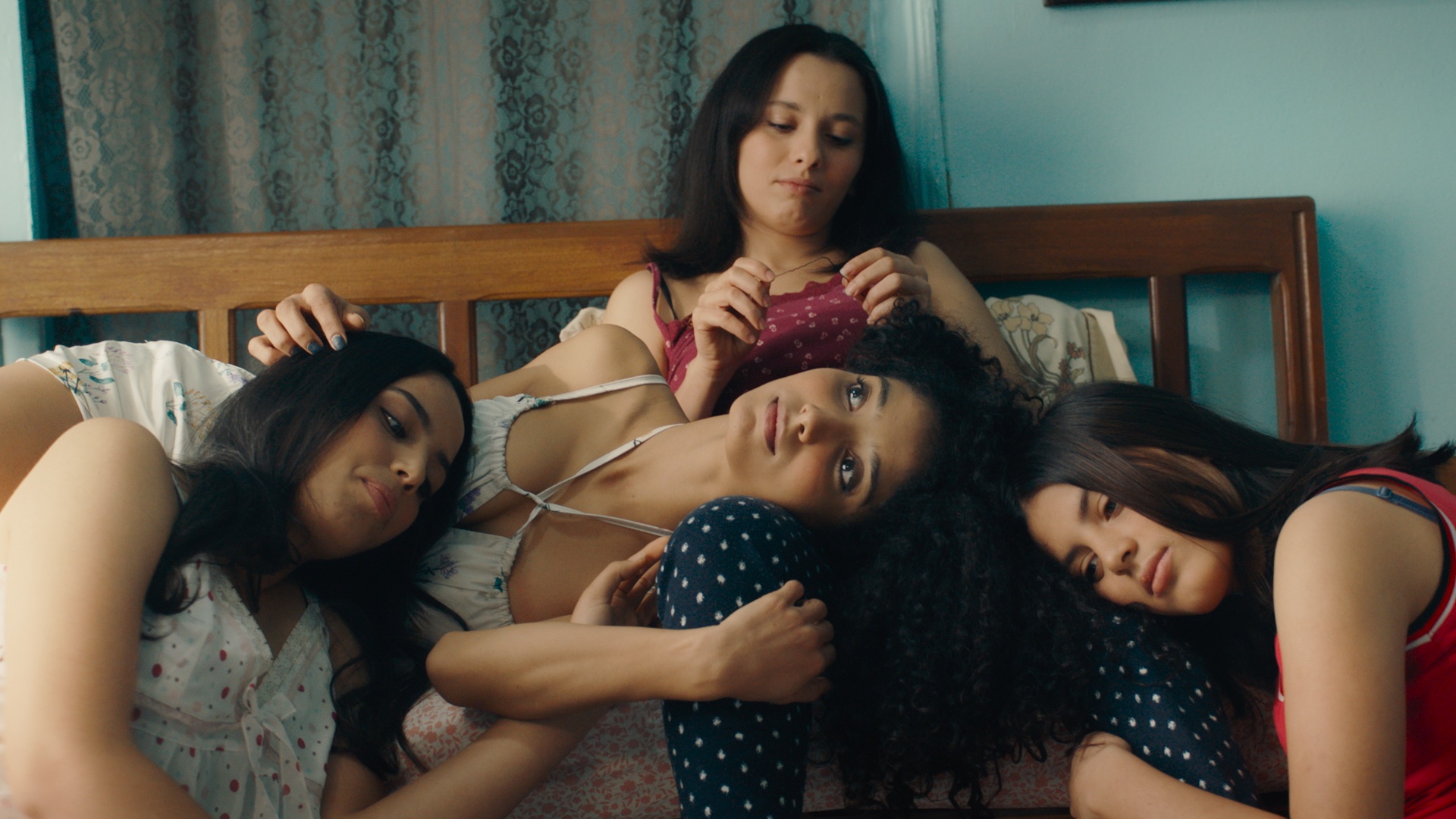
What role was she playing and what was the nature of this trap?
— I’ve noticed that in life we often behave in a way that is infuenced by clichés that we’ve seen on TV or in the media. Olfa had been conditioned by journalists. She played – with great tragedian talent – the role of the grieving, hysterical, guilt-ridden mother. Most of these reports do not allow for the different dimensions of an individual to be explored. Yet Olfa is so exuberant, so ambiguous, and so complex that it is impossible to show just one side of her. However, taking a deeper look at the contradictions, the sensations, the emotions, requires time that journalists do not have. It is the role of cinema to explore these areas, these ambiguities of the human spirit. And so I began to contemplate this film as a therapeutic laboratory in which memories would be recaptured.
Was it at this point that you decided to call upon Hend Sabri to bring Olfa face to face with her fictional double?
— When I realized that what I had filmed was not interesting, I concentrated on The Man Who Sold His Skin. And throughout filming, I could leave this story on the back-burner. I didn’t even know if I was going to go back to it or not. But since I like to finish what I start, I came back to it. I had greater perspective and I could see it more clearly. I now wanted to film Eya and Tayssir whom I had gotten to know on the various shoots. But as we were right in the middle of lockdown, I realized that the best way to put Olfa back into the domain of reality and of her own memories was to make a documentary on the preparation for a fake fiction that would never see the light of day. Based on everything that Olfa had told me, I drafted a script involving Eya and Tayssir on the preparation of a fiction in which the actors would meet the real protagonists to better express what they had lived through.
What did you hope to gain out of such a process?
— Olfa needed to be confronted with professional actors. From now on, they would be the actors, not her. They would serve as eye-openers for Olfa and her daughters to help them to find their inner truth. I needed actors to play her absent daughters and I needed an actor to question her, to help her to understand some of the major events in her life. It wasn’t the reconstitution of the memories themselves that interested me but the exchanges between Olfa and her daughters to achieve this. My role in this film was that of director, that of guiding them, searching with them while Olfa recounted and analyzed significant episodes in her life in great detail. By asking her questions about specific details, and her motivations, Hend Sabri allows Olfa to reflect on her past without indulging her. If Olfa had remained alone with me, she would have just served up the same story, the same cliché, again.
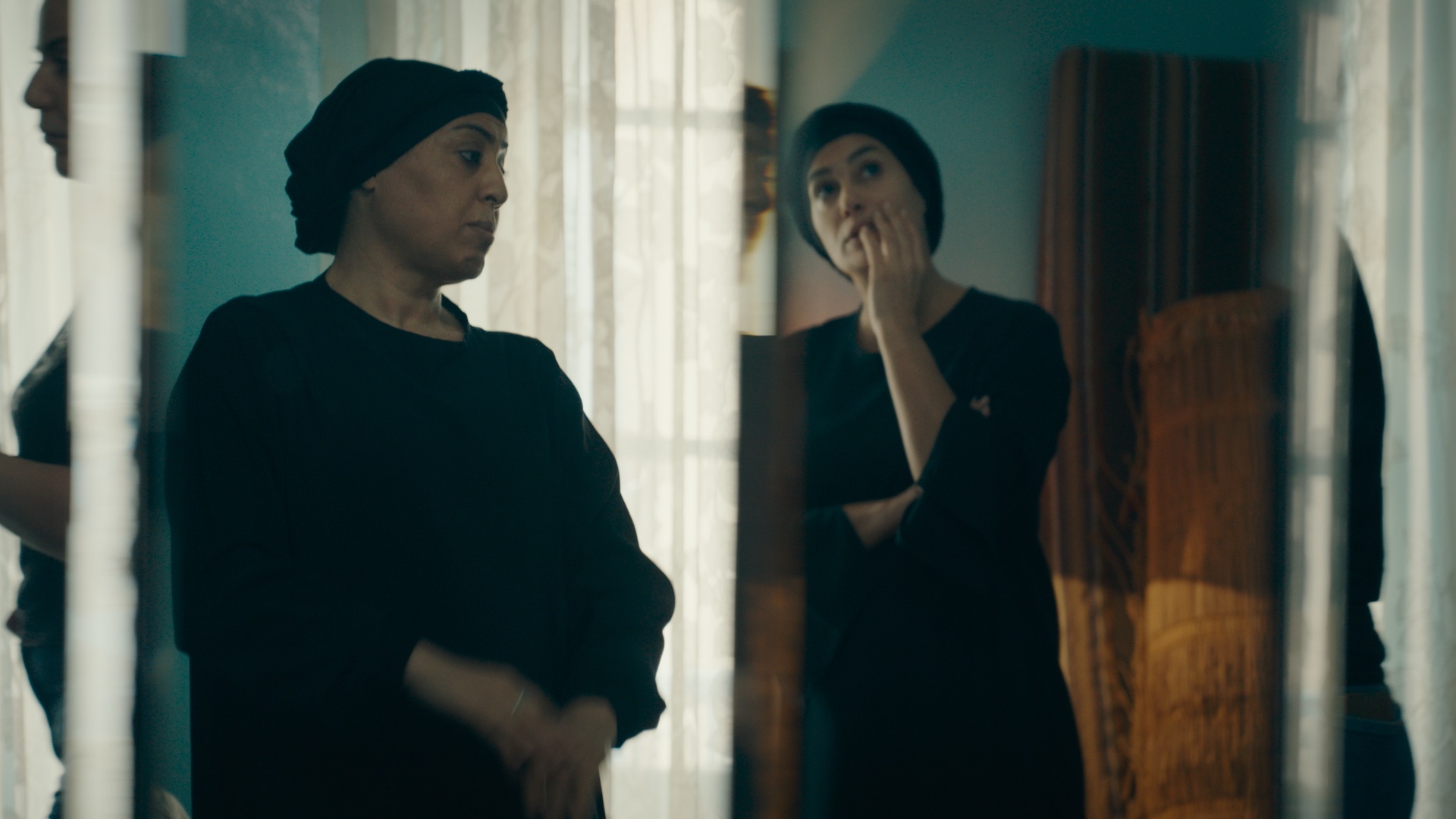
Hend Sabri is a star. Is Olfa not afraid that she will steal her spotlight and get too much coverage?
— Quite the contrary. She thought that finally, people would believe her! Olfa thinks that no one has ever believed her because she isn’t famous. This great actress would finally bring her the credibility that she needed so that her story could finally be heard. You should know that when she began giving interviews in 2016, Olfa was often slandered, lambasted and insulted. Thanks to Hend Sabri, she would finally be listened to with respect. When I understood that, it made me want to try out many things during filming.
This duality between Olfa and Hend Sabri ends up almost making us doubt the reality of what we are watching. Was it your aim to create this sense of confusion?
— You aren’t the only person to say that to me! I can’t shake off my past as a mockumentary maker. Kiarostami said that knowing what is true or false isn’t important. We can lie in film from the moment that we are succeeding in extracting a profound truth. That’s what counts! For me, the most important thing is to move the audience by revealing a deeper truth to them.
Indeed, one can’t help but think of Close-Up by Abbas Kiarostami. Did you have this reference in mind while you were writing the scenario for the film?
— Two films changed my relationship to cinema: "Close-Up" and "F for Fake" by Orson Welles. Thanks to them, I realized that films allowed for a wide scope of experimentation. I wanted a Brechtian element in my film, where it would be possible to act out the scene while reflecting on it at the same time. I wanted us to be able to go from real moments of acting to moments of refection on what was being acted out. The line needed to become blurred because we spend our time acting in life and even more so in front of the camera. Since the early days, I’ve always enjoyed exploring the tenuous relationship between fiction and documentary. It is a common thread that runs through all my films.
Why did you choose to shoot the film in one single location?
— The universe of this film is introspective and so I didn’t need to have reworked sets. I just needed a visual, stylistic coherence. So we found this old, down-market hotel in Tunis that we turned into a film studio. I knew that the audience would be able to make the connection between the different elements themselves without us needing to recreate everything. I had in mind the film set which was traced out with chalk in Dogville by Lars von Trier, a film that really fascinated me. I just needed a big set that would allow me to install a backdrop, like that of the police station. As I knew that we would be exploring intimate, sensitive and painful topics together, I didn’t want to have to be bound by the same constraints as with a classic film shoot. I wanted to strip everything back.
Did your team realize that they would be part of such an intimate, and at times painful, experience?
— When I brought them all together, I suggested that they write a collective constitution in which everyone could express what they didn’t like on a film set. Everyone needed to feel comfortable to enable Olfa and her daughters to make their journey together. What could be more delicate than spending time with these women who were exploring their inner selves and the most troubled parts of their lives in front of us! In order to create the ideal conditions, we put together a mostly female team. In short, we created the conditions for some thing that was therapeutic not only for them, but for the whole group. Everything that happened during this film shoot stirred up very strong feelings inside each one of us. Even myself, being the control freak that I am, I was so overcome with emotion that I had to pull myself together on more than one occasion to think about my camera placement. Despite the complexity of the set-up, we all felt that something special was happening.
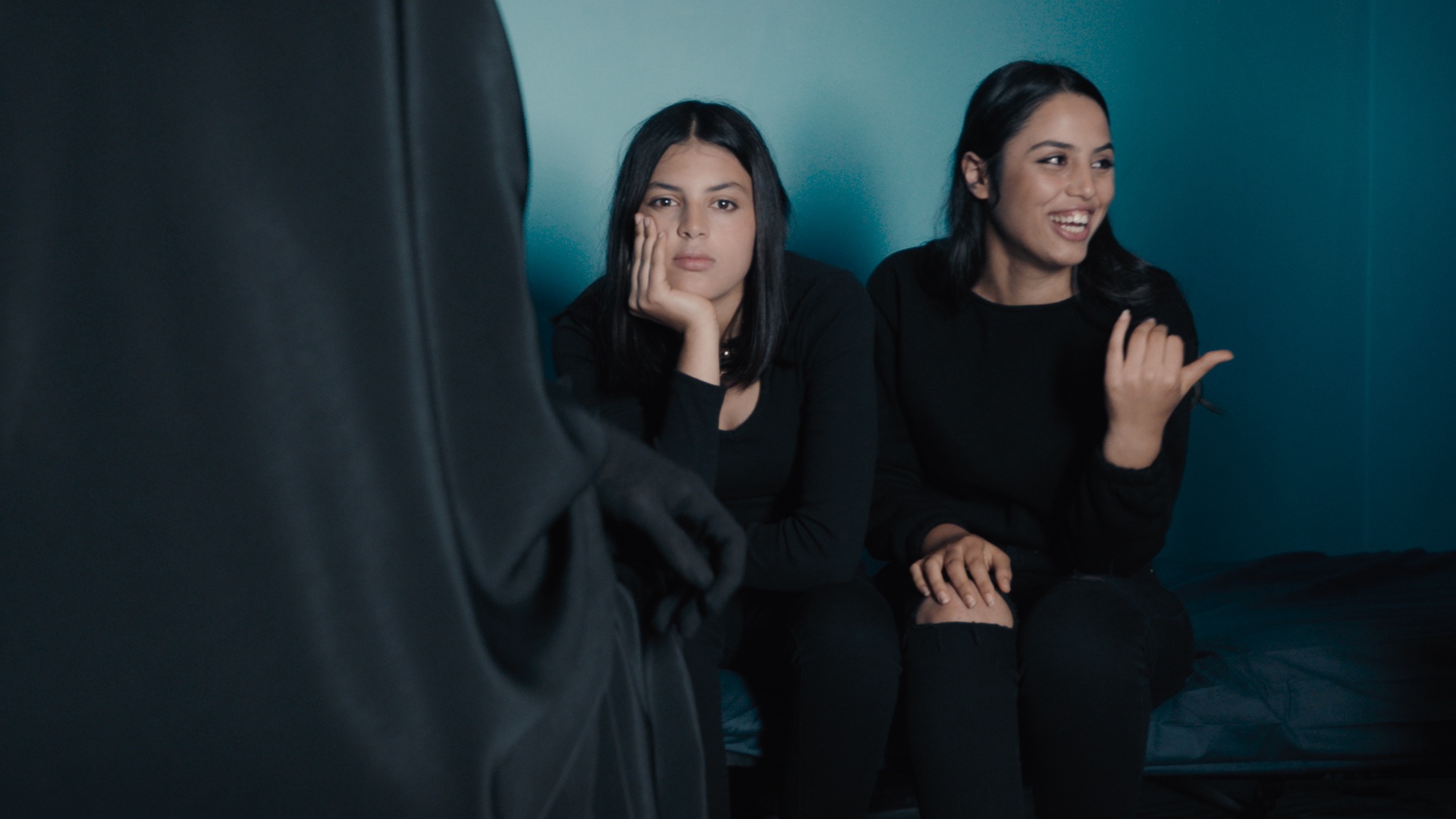
Why did you choose to have just one actor to play the few men in this story?
— Once again, we come back to Dogville and to my belief in the audience’s ability to be able to connect the dots between them, to understand that just one actor would play all of the men in this story. What struck me about Olfa and her daughters’ lives is the absence of men. As soon as a man enters their world, they throw him out. The men around them can’t survive them. They have a very complex relationship with masculinity. Olfa embodies something that is both very feminine and very masculine. She says that she is more of a man than her husband. In a way, as all of the men have been ejected from their group, it is as if all these men are just one man, which is why I wanted just one actor to play them.
During an especially tough scene, the actor (Majd Mastoura) breaks down during filming and asks to speak with you off camera. Why did you choose to keep this moment in the film?
— As I was saying, it is also a film about the work of actors. I found it interesting to show how an actor could be affected and overwhelmed by the brutality of real life. Hend Sabri also talks about it at the start of the film, about the fact that an actor learns to protect themself so that they are not overwhelmed or affected by the character. Majd wasn’t aware of everything that we had done beforehand with the girls, especially with the psychologists. For him, we could not permit ourselves to elicit such confessions in front of a camera. He thought that this intimate speech should not have left the psychologist’s office. When you are faced with such revelations about other people’s lives, you have to ask yourself a thousand ethical questions. He wasn’t aware of my involvement and thought that I hadn’t asked myself those questions. And so, he wanted to stop the scene. On my side, I had to show his distress and his doubts as an actor. Moreover, this scene ends with the speech of Eya who expresses her need to film it. Without her reaction, I probably wouldn’t have included the scene in the film.
The strength of their resilience is phenomenal. When the film begins, it is astonishing to see them so radiant and smiling, when we are expecting to find women who are grieving.
— Absolutely. They are like that in real life. They talk to me about horror, tragedies, and I am in fits of laughter. I wanted to show this contrast between the story we tell and the way that we tell it. It is very special. Film is able to show that. I think that the film was good for them as well. It served as a therapeutic experience for them. They gave a lot and I think I can say that they received a lot in return. They say so themselves, actually. This film has allowed them to express themselves.While up until then, they didn’t have a voice, we offered them the chance to be heard.When they saw the film, their first reaction was: “Thank you, you have given us our voice.”
Did you already have the final image in mind when you wrote the script for this film?
— I knew that I would end on that specific image. Based on the parts that I had filmed in 2016/2017, as well as the many anecdotes, I wrote a script without dialogue that just consisted of key scenes from their lives that I felt were significant. While the script was somewhat mixed up and not in chronological order, I nevertheless knew that I would end with this image, because, as Olfa says, this film is first and foremost a refection on the passing down of traumas from mother to daughters. Olfa inflicted some of the abuse that she herself had suffered as a child on her daughters. The passing down of traumas from mother to daughter is a recurring theme throughout this film. It is the story of a curse, because in turn, this little girl will hold her mother to account. That is why I wanted to conclude the film in this way.
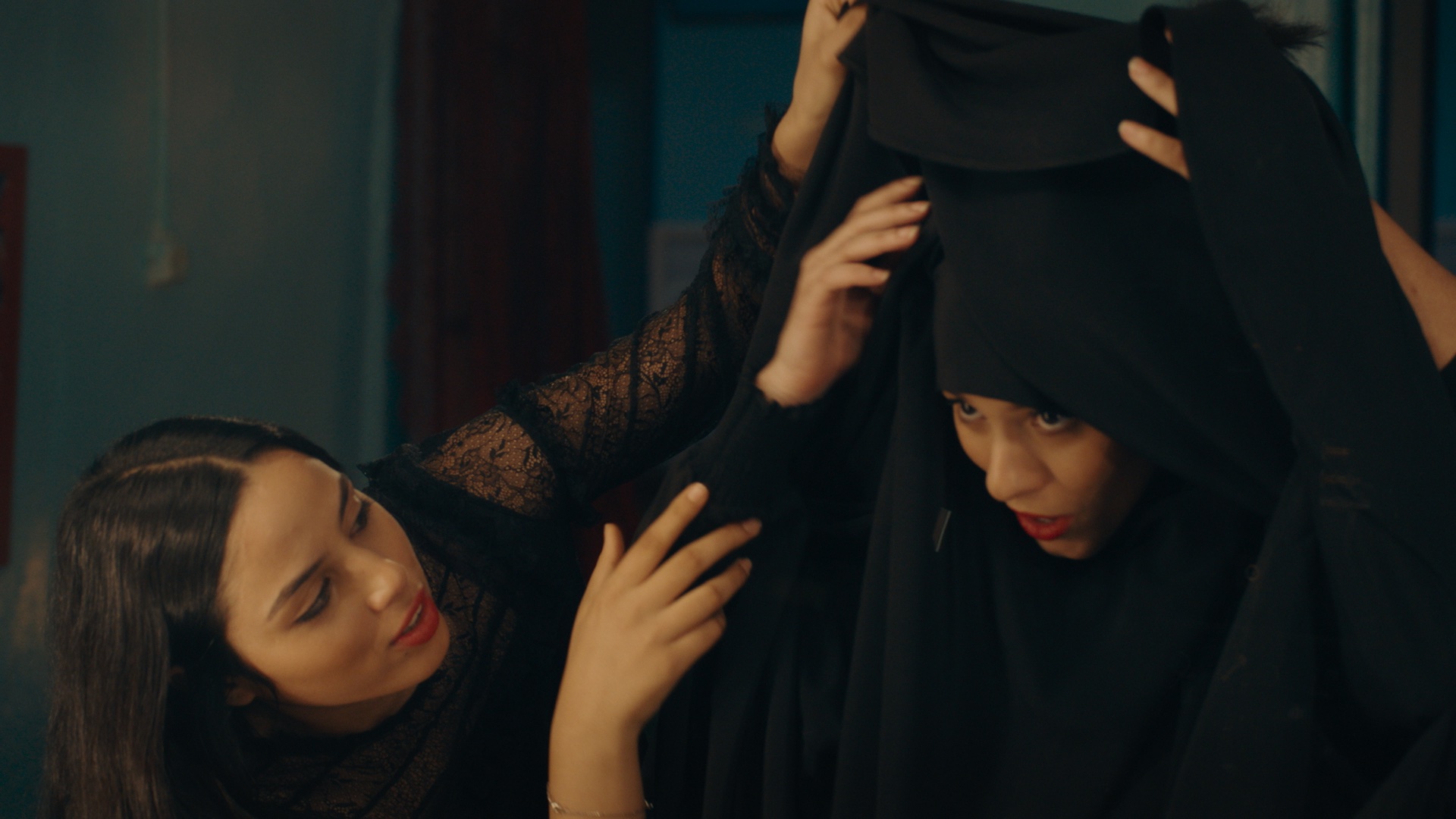
What exactly is this curse that is passed down from mother to daughter?
— It is a retrograde form of patriarchy that women have to assimilate in order to survive. They don’t have a choice. Olfa might not respect men, but she still embodies one of the forms of this patriarchy. When you come from a humble background like her, the choice for a young girl is limited: to become a prostitute or holier-than-holy. There is no room for nuance. And as they are beautiful – that is their other curse – her daughters chose holiness and even going beyond holiness, they have wished for death!
Through the four portraits that you paint of these young women, is it also a film about adolescence?
— I would say that it is primarily a film about adolescence, of this chasm between childhood and adulthood, where suddenly we seek to understand, and even to experiment with, the idea of death, as one of the girls demonstrates when she wants to sleep in a grave. But even as we play with death, it is the period of our lives when we are searching for an ideal of life while worrying about our social environment and the fate of all humanity. I think that the girls were looking for something that was missing. They wanted to challenge the authority of Olfa who has always embodied both their father and mother figure and who wanted to repress their sexuality. Since they did not have the tools to be able to do so, they became, as one of them said: “God’s chosen ones”. This gave them the illusion of transcendence to try and impose their desires on the world. I think that this film documents the different relationships to death and to life that sometimes run through adolescents in a confused manner.